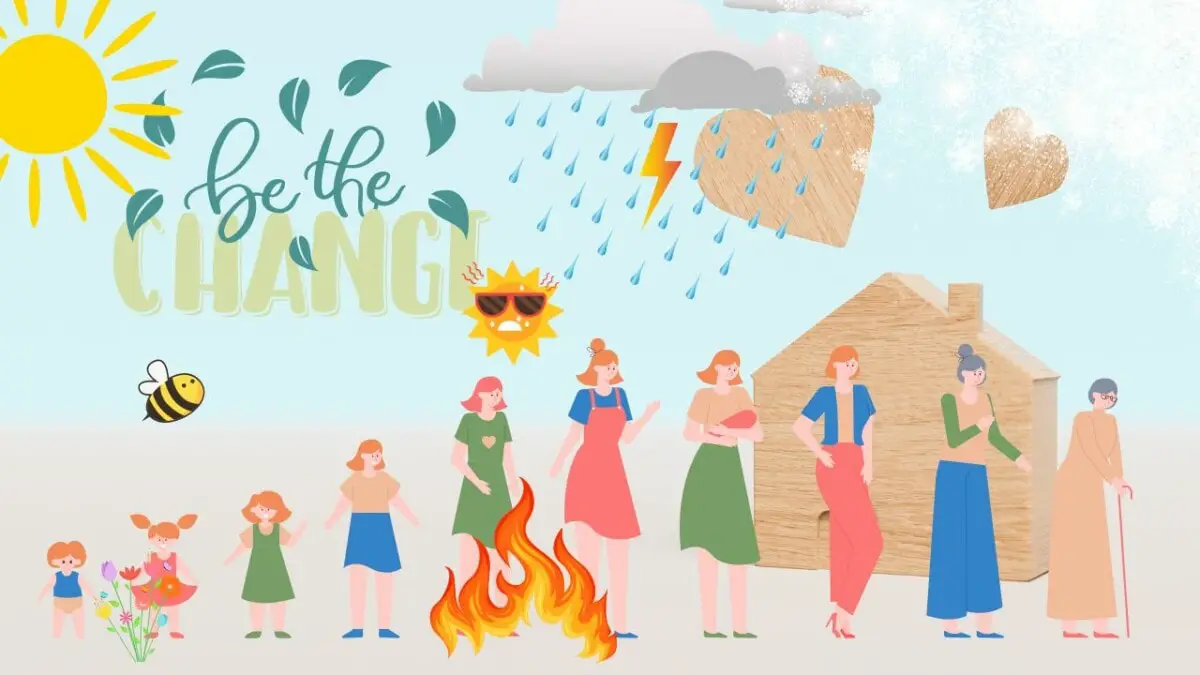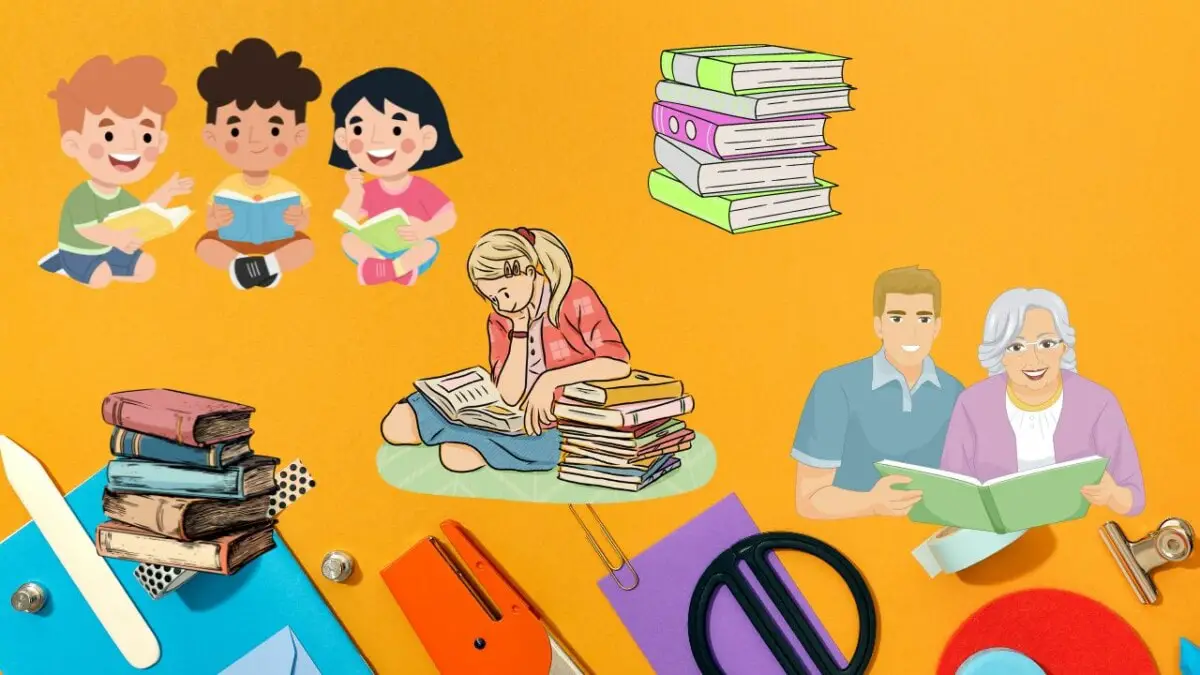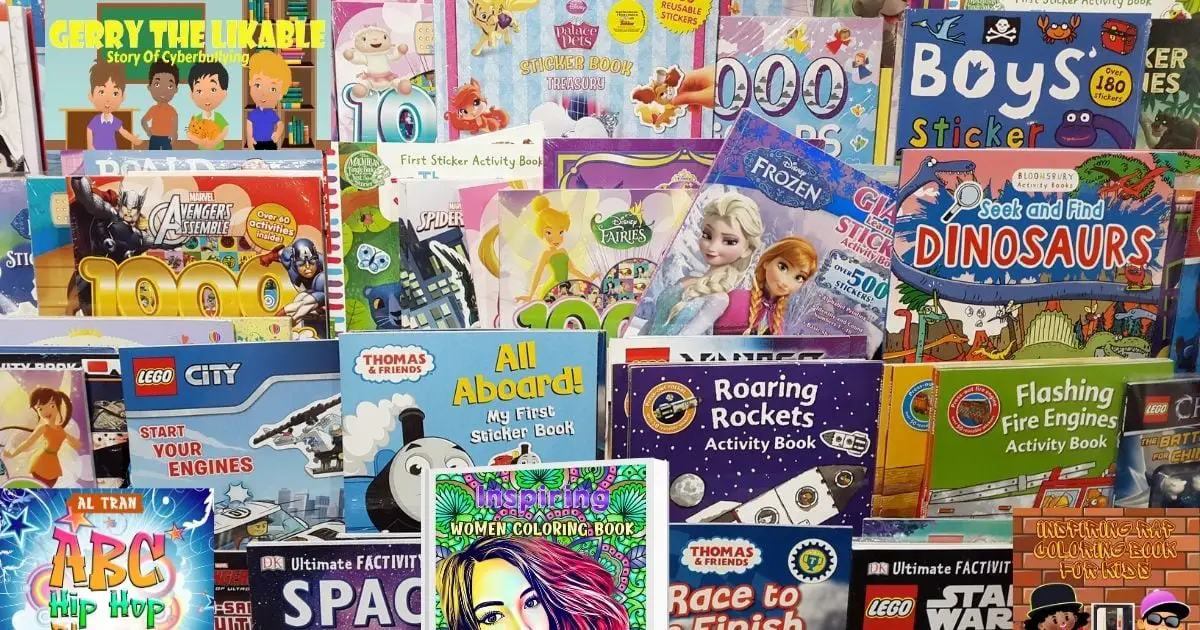Amidst the ceaseless activity and complexity of contemporary existence, we often disregard literature’s potential to bestow upon our children both simple pleasures and profound transformations. In a society awash with technology, where screens dominate every facet of life, inciting kids to embrace reading might appear antiquated. Yet, the advantages that fiction imparts to them extend far beyond basic amusement. This article delves into the multifaceted advantages of immersing children in the world of reading fiction.

1. Fostering Imagination and Creativity
Cultivating their imagination stands as a primary advantage of exposing children to fiction. Unlike non-fiction, which grapples with facts and reality, limitless possibilities unlocked when we open that door of fantasy are what truly engage our young minds. Engaging with fictional stories transports children into fantastical worlds. In these realms, all things become possible. This sparks their creativity, helping them think beyond the ordinary and dream big.

Children are Creators of Their Imaginations
Within these imagined realms, children architect their fantasies. They construct worlds in which talking animals and magical creatures coexist. This unbridled creativity fosters their artistic skill. Moreover, it sharpens problem-solving skills as navigating through the complexities of fictional universes becomes a necessity.
The American Academy of Pediatrics conducted a study that revealed that children exposed to narrative fiction exhibit heightened activation in brain regions associated with the interpretation of others’ intentions. This finding implies that fictional stories bolster a child’s capacity for empathy and understanding diverse perspectives, critical faculties necessary for traversing the intricacies inherent in real-life relationships.
- Enhanced Creativity: Children’s unrestrained imagination in fictional worlds contributes to creative thinking.
- Social Empathy Development: Understanding characters‘ intentions fosters empathy, which is crucial for real-life relationships.
2. Enhancing Cognitive Skills
Reading, as an act, functions as a cognitive exercise that activates multiple brain regions. Children who engage in fiction reading do more than decode words on the page. They understand intricate narratives, track character development arcs, and foresee plot advancements. This mental challenge amplifies their cognitive capacities, memory retention, analytical thinking, and problem-solving skills included.
Moreover, the engagement of cognition with fiction surpasses merely a reading session. Often, children engage in contemplation of the story. They ponder alternative outcomes and even partake in discussions about it, with either their peers or adults. This dynamic involvement hones their analytical skills and cultivates an invaluable critical thinking habit that’s applicable not only academically but also within real-world contexts.
Fiction Helping Children in Day-to-Day Life
A study in the Journal of Applied Developmental Psychology publishes an observation. Children engaging with literary fiction demonstrate superior performance on tasks that measure cognitive reflection and social reasoning. The researchers propose that exposure to well-crafted fictional stories might encourage critical thinking about characters’ motivations, and actions. Hence, sharpening their cognitive capacities.
- Active Cognitive Engagement: Beyond reading, active contemplation, and discussion enhance analytical thinking.
- Long-term Critical Thinking: The habit of critically analyzing fictional content aids in academic and real-world problem-solving.
3. Building Emotional Intelligence
A fundamental aspect of maturation involves actively navigating the undulating currents of emotions. Children, however, utilize fictional narratives as a secure sanctuary to probe and comprehend an extensive range of emotions, not only their own but also those attributed to characters within these tales. By establishing identification with the protagonists in fiction, young minds cultivate empathy and boost their emotional intelligence.
The Connection Between Reading Fiction and Understanding Emotions
Children, immersing themselves in stories, experience a spectrum of emotions vicariously including but not limited to joy, sorrow, excitement, and fear. This emotional journey fosters their nuanced understanding, not only of their feelings but also of those belonging to others. Identifying with characters who traverse complex emotional landscapes equips children with an extensive range that aids them notably in articulating their emotions more precisely.
Research revealed an interesting correlation. Exposure to narrative fiction in children directly corresponds with heightened levels of empathy. By engaging in vicarious experiences and immersing themselves within the stories of characters grappling with diverse challenges, these young readers acquire an essential skill. They not only identify and understand others’ emotions but also relate to them effectively. This ability is pivotal for fostering healthy relationships and promoting efficient communication processes.
- Nuanced Emotional Vocabulary: Experiencing diverse emotions in stories enhances the child’s ability to express feelings.
- Empathy Development Through Challenges: Identifying with characters facing challenges fosters empathy and emotional understanding.
4. Instilling Moral Values
Moral lessons and ethical dilemmas infuse many classic works of fiction for children. Often, stories spotlight characters who make choices that illuminate themes like honesty, kindness, and perseverance. As children read these narratives; they internalize moral values in a manner both natural and engaging.
Characters’ moral dilemmas actively teach children the consequences of various choices. These stories offer a secure environment for kids to scrutinize ethical considerations and probe into action implications. The process of internalizing fiction-based morals forms an integral part of forging robust ethical foundations. It steers children as they discern their own decisions amidst real-life circumstances.

Can Fiction Help Kids Have Better Values?
Psychologist Raymond Mar conducted a study that suggests children exposed to stories featuring moral content demonstrate elevated levels of prosocial behavior. The context provided by fictional narratives for ethical choice discussions, alongside their consequences, allows kids not only to develop an understanding of right and wrong but also fosters an appreciation for the implications therein.
- Exploration of Consequences: Fictional stories provide a safe space for children to explore the consequences of various choices.
- Ethical Foundation Development: Internalizing moral values through fiction guides children in making ethical decisions.

5. Improving Language Skills
Reading fiction confers language skill development benefits. Children encounter a rich vocabulary and diverse sentence structures through exposure to fictional stories, expanding their linguistic abilities. Furthermore, immersion in various narrative styles amplifies their understanding of language nuances. It deepens their appreciation for subtle rhetorical devices.
Fictional Reading or Vocabulary Enhancer?
The tapestry of fiction presents children with an array of words and phrases that broaden their vocabulary. The language’s richness in fictional narratives enables kids to absorb new terms effortlessly, comprehending how they are used within context. Moreover, experiencing various sentence structures hones their linguistic proficiency. This ultimately enhances both written and oral communication skills.
The National Reading Panel’s analysis of research on reading instruction. It discovered that children, especially those who regularly engage in independent reading, specifically of narrative fiction, exhibit notable improvements in vocabulary acquisition and comprehension skills. The immersive quality of fictional storytelling not only facilitates a natural absorption of language patterns but also boosts linguistic fluency.
- Effortless Vocabulary Expansion: Fictional narratives expose children to a rich tapestry of words, enhancing their vocabulary effortlessly.
- Refined Linguistic Proficiency: Exposure to diverse sentence structures in fiction improves both written and spoken communication skills.

6. Coping with Life Challenges
Challenges saturate life, and fiction is a valuable tool for children’s navigation through the complexities of maturation. Kids can extract insights, resilience, coping mechanisms, and the significance of perseverance from characters who face adversity head-on and conquer obstacles.
Fictional stories play the role of a mirror through which children can reflect on their own experiences, often mimicking the challenges of real life. The sight of characters overcoming setbacks and emerging stronger instills not only hope but also resilience in them. When children identify with both the struggles and triumphs that fictional protagonists face, they construct an invaluable mental toolkit for coping with life’s inevitable challenges.
Can Children Cope Better by Reading Fiction?
Studies have shown a positive impact on children’s coping strategies through exposure to narrative fiction. When they identify with characters who face challenges, children internalize the concept that setbacks are intrinsic in life and resilience is an invaluable trait. This realization fosters their robustness.
- Mirror for Real-life Challenges: Fictional stories mirror real-life challenges, providing children with a framework for understanding and coping.
- Building Resilience Toolkit: Identifying characters’ struggles helps children develop coping mechanisms for life’s challenges.

7. Fostering a Lifelong Love for Reading
A love for reading may arguably stand as one of the most enduring gifts we can bequeath to our progeny. Introducing them to fiction’s enchanting world in their formative years establishes an unbreakable bond with books that persists throughout life. Such enrichment is not limited purely to leisure. It morphs into an inexhaustible spring of learning and personal growth, a testament to the power inherent within literature.
Reading is A Child’s Best Friend
Fiction’s magic resides within its capacity to whisk readers into myriad worlds, igniting curiosity and an unquenchable thirst for knowledge. The delight children derive from immersing themselves in captivating books nurtures a fondness for learning that surpasses institutional education. This inherent urge to acquire knowledge forms an enduring ally throughout life, guaranteeing that reading continues as a wellspring of joy and enrichment perpetually.
Research by the National Endowment for the Arts reveals a positive correlation. Early exposure to literature sparks and subsequently nurtures a lifelong reading habit. Children who cultivate an affinity for fiction stand more likely. They persist in their reading endeavors into adulthood. This persistence allows them to reap the rich cognitive, emotional, and social benefits of continuous engagement with written material throughout their life.
- Cultivation of Intrinsic Motivation: Experiencing the joy of getting lost in fiction fosters a lifelong love for learning.
- Continual Source of Joy and Enrichment: A love for reading becomes a lifelong companion, ensuring continuous cognitive, emotional, and social benefits.

8. Encouraging Lifelong Learning
Reading fiction confers more advantages to children than mere cognitive development and emotional intelligence. It establishes the fundamental attitudes of lifelong learning. As kids immerse themselves in fictional narratives, populated by diverse characters and set against various backdrops, their curiosity ignites. This prompts them to actively explore an array of subjects for further information.
Books are Teachers in All Times
Children in the realm of fiction frequently confront unfamiliar concepts, historical events, and unique cultures. This encounter instigates an inherent propensity towards deeper exploration into these subjects. Thus, it nurtures a routine of self-driven learning. A fascination with dinosaurs, an intrigue for far-off galaxies, or even curiosity about varying periods, all find their gateway to broader knowledge through involvement with fiction.
Furthermore, connecting fiction to real-world information cultivates children’s capacity for cross-domain application of knowledge. This interdisciplinary method of learning emerges as a significant asset that spurs them to delve into and comprehend the interrelatedness of diverse subjects.
- Gateway to Diverse Knowledge: Fictional stories spark curiosity, motivating children to explore diverse subjects.
- Interdisciplinary Learning: Connecting fiction with real-world information encourages a holistic approach to knowledge.
9. Fostering a Sense of Community
Children often unearth a sense of belonging and community through solitary reading. Particularly, fictional stories featuring relatable characters and settings engender a shared experience among readers. This communal angle to reading not only intensifies narrative enjoyment but also cultivates an attachment with others who are undertaking the identical literary voyage.
Reading Weaves a Web of Friendship
Children often adopt books frequently read in schools or recommended by their peers as a shared language. The discussion of characters, plot twists, and favorite stories operates as an avenue for social interaction. This collective experience not only fortifies friendships but also expands the child’s perspective. It introduces them to manifold interpretations and insights from others – thereby broadening their understanding significantly.
Beyond the immediate social circle, the sense of community extends. As children come to understand that readers worldwide enjoy their favorite stories, they develop a sense of universality. This awareness nurtures empathy and comprehension. Despite differences, shared human experiences unite us all.
- Shared Language for Friendship: Discussing books becomes a social activity, strengthening friendships.
- Universality of Stories: Realizing that favorite stories are enjoyed globally fosters empathy and a sense of community.

10. Nurturing Time Management Skills
Cultivating effective time management skills stands as a crucial facet in today’s fast-paced world of child development. Engaging with fiction, whether it involves allocating dedicated time for leisurely activities such as reading a few chapters before bedtime or spending a lazy weekend afternoon immersed in bookish pursuits, directly contributes to this skill set. Thus, encouraging an essential aspect, efficient use and allocation of your temporal resources.
Always Late? Books Can Help Children Manage Time
Engaging with fictional narratives, moreover, imparts to children the value of sustained focus. As they plunge into a story, their attention spans are managed which is a skill that yields benefits in diverse life domains, notably academic pursuits. The capacity to concentrate on one task for an extended period emerges as a valuable asset in our distraction-saturated world.
Finishing a book or series, in addition, imbues one with a sense of accomplishment and discipline. The process of pacing yourself through the narrative, be it contained within a short novel or extended across an epic saga, cultivates patience and perseverance.
- Balanced Approach to Time: Reading fiction encourages intentional downtime, contributing to effective time management.
- Building Patience and Perseverance: Completing a book or series instills a sense of accomplishment, building patience and perseverance.
Final Thought
Conclusively, fiction reading confers far-reaching advantages upon children. It encompasses cognitive, emotional, and social dimensions. It fosters creativity as well as empathy, enhances cognitive skills, and aids in the instillation of moral values. Indeed, fiction plays a pivotal role in shaping the holistic development of our future generations. As parents, nurturers, and educators alike, we must not overlook this power.
Rather, let us harness it for good by embracing storytelling’s influence to ignite imaginations that will go on shaping tomorrow’s world with their unique perspectives on life’s complexities. Within the pages of an exceptional book, a child discovers more than just a story. They encounter and forge a lifelong friendship. This is their compass on the odyssey towards self-discovery and growth, an adventure that will shape them profoundly.
By AL Tran





